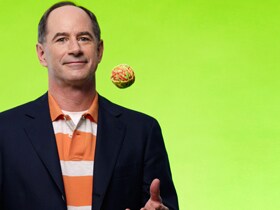
Integrative Thinking
What links great leaders, Roger Martin says, is "a predisposition to and capacity to hold in their heads two opposing ideas at once.”
How do you define "integrative thinking”?
If you are faced with opposed models, integrative thinking is where you have the capacity to create a better model, superior to both and incorporating aspects of each model, rather than choosing one model at the expense of the other.
What would be an example of that?
When Issy Sharp, founder of the Four Seasons hotel chain, was starting the company, building his first property, everyone in the industry told him that there were only two business models in the industry that worked.
You could either go down the motel business route, small hotels with under 200 rooms, with low amenities but a lot of comfort and warmth. Or, alternatively, you could go down the large city centre convention hotel business route. Bigger hotels with 750 rooms upwards, all the amenities, but tending to be more cold and impersonal than a smaller hotel.
So which did Sharp choose?
Well this is where Sharp stood out. He refused to accept the premise presented to him that it was "either, or" - one or other model –that you could not do both small and large at the same time, or have the best qualities of both models.
Sharp decided to create a new model - the Four Seasons model. A medium-size hotel between 200 and 350 rooms, with incredible service, that enables them to charge a price premium to fund the amenities, even at a scale that people might think too small to have all the central amenities you need in a hotel.
That’s what integrative thinkers do?
That is the classic integrative thinking response. It’s a response when two available models oppose one another, and are each unsatisfactory. More conventional thinkers are inclined to accept the situation, and see their job as making the tough decision of choosing between the two.
You found this way of thinking a common denominator among very successful business leaders?
Yes, the overwhelming majority. I would say in the order of 80%. But not all.
What does this finding mean for leaders and leadership?
Don’t think that you’re going to be a great and successful leader on the basis of analysing, evaluating, or choosing between models. And, unfortunately, a lot of business education is oriented to doing just that.
Instead, the message is that greatness will come from creating new models, and seeing yourself as a person who does that. Your job is not to choose from among the existing or presenting models, but rather to create something that’s better.
Can people learn to do this?
Having taught this to generations of MBA students, I am confident that you can be moved along the spectrum from conventional towards integrative. Anybody can if they want to; if they show the desire. How far they can move is another question.















